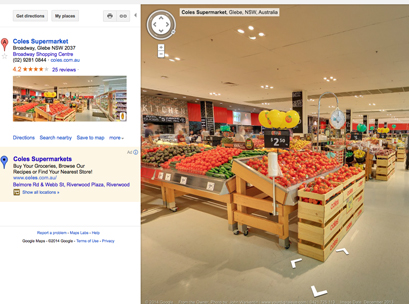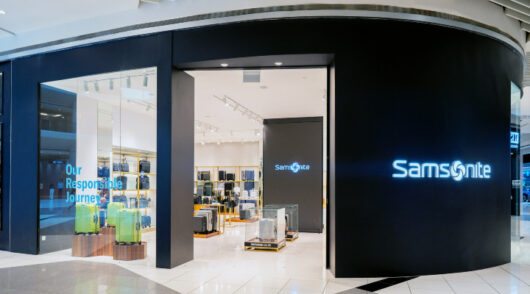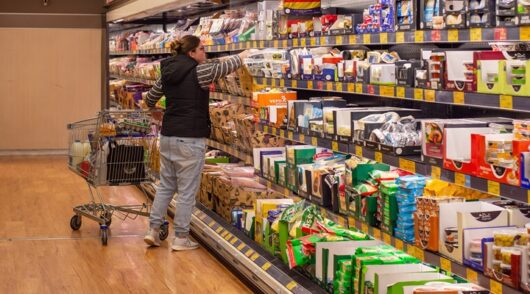 Wesfarmers is currently Australia’s largest retailer but is set to surrender that crown to Woolworths when it divests its food, liquor, fuel and convenience businesses.
Wesfarmers is currently Australia’s largest retailer but is set to surrender that crown to Woolworths when it divests its food, liquor, fuel and convenience businesses.
The spinoff of those businesses into a new entity to be listed on the Australian Stock Exchange is a timely move, given the competitive challenges in the grocery market but it also raises the question about whether or Wesfarmers will exit retail completely.
Meanwhile, Wesfarmers is obviously confronting the issues and serious underperformance of the Bunnings UK venture, which has many analysts speculating on an exit from that market.
The company’s Target discount department store chain is also a basket case and stuck in a fiercely competitive and over-shopped retail category.
Wesfarmers acquired the Coles Group in a $22 billion on-market takeover in 2007, at a time when private equity firms were mulling over the purchase of the company.
At the time, Wesfarmers already owned the Bunnings Warehouse chain and after recruiting a team of experienced supermarket executives from the United Kingdom, worked to reinvigorate the struggling Coles food and liquor business.
Back in 2007, Target was outperforming Kmart and Wesfarmers gave serious consideration to divesting the Kmart chain before backing former McDonalds CEO, Guy Russo, as managing director.
In the past decade, Bunnings has continued to prosper in Australia and New Zealand, with annual sales of more than $14 billion and for the first time in the latest half-year, a higher profit contribution than the food and liquor division.
The Officeworks chain has also continued to build market share and increased its sales to more than $2 billion.
Meanwhile, Kmart has completed a long turnaround and is now closing in on $6 billion in sales while Target’s revenues and earnings have markedly fallen.
Where to now for Coles?
The UK leadership team brought in to revitalise the Coles supermarket chain propelled the chain past arch-rival Woolworths in terms of sales growth, ultimately forcing Woolworths into a corporate restructure, heavy writedowns and profit sacrifice to fund a counter-attack.
Coles’ liquor business has not achieved the same success as the supermarket business, but is in better competitive shape than back in 2007.
The departure of two of the key UK retail executives, Ian McLeod and Stuart Machin; Woolworths reawakening under CEO Brad Banducci; and ever increasing competition in the grocery market has throttled Coles sales growth and eaten into market share.
Last year, Wesfarmers considered spinning off its Officeworks chain but decided not to proceed because of volatile market conditions and the prospect of a lower financial return than it expected.
Wesfarmers had hoped to realise around $1.5 billion on an Officeworks float, but analysts were less bullish and valued the chain closer to $1b.
A Wesfarmers review identified several reasons for divesting Officeworks; including the scale of the business and likely growth prospects against online competition; the squeeze on margins and changing business practices driven by technology changes.
The decision to divest the Coles food, liquor and convenience businesses follows an ongoing review of Wesfarmers retail portfolio, a review which has focused heavily on growth prospects.
Wesfarmers has essentially reached the conclusion that Coles is a mature business that will not yield the growth metrics it requires.
Facing increased competition from Aldi, Costco and new German entrant, Kaufland, as well as arch rival Woolworths and the Metcash IGA independents, Wesfarmers recognises that Coles will require significant capital investment and profit sacrifice to defend its market share and generate further sales growth.
Effectively, Wesfarmers has decided that this is ‘as good as it gets’ for the food, liquor and convenience businesses and therefore the best time to exit and realise a capital return that can be reinvested in a business or businesses with better growth opportunities.
The proposed demerger will create a new top 30 company listed on the Australian Stock Market.
As at 31 December 2017, Coles accounted for approximately 60 per cent of Wesfarmers’ capital employed and 34 per cent of group divisional earnings.
Wesfarmers plans to retain a 20 per cent stake in the new listed entity, a move that would be important for investor confidence.
Analysts believe the Coles network of 2500 stores across supermarkets, liquor shops, convenience outlets and hotels would be valued around $19 billion.
Scott said the Group was repositioning its portfolio to target a higher capital weighting toward businesses with strong future earnings growth prospects.
However, the Coles sale and the aborted Officeworks divestment last year prompts the question of whether or not the entire Wesfarmers retail portfolio will meet Scott’s expectations for return on investment, capital growth and earnings contributions.
Live prospects
Wesfarmers immediate concerns in respect of underperformance are the Target chain and the Homebase home improvement chain, which was acquired in 2016 for $705 million.
The chain is now owned and operated by Bunnings UK and a number of stores have been converted to the Bunnings Warehouse format as part of a $1 billion investment in store upgrades.
Wesfarmers claims the converted stores have shown encouraging results but the sales of the business overall have fallen sharply and losses have been mounting.
Wesfarmers took a $1 billion writedown in its accounts this financial year on the UK venture and has been looking for potential buyers that would allow the company to exit the business without incurring the massive costs associated with a closure.
The company is understood to have now commissioned the Boston Consulting Group to review the business and identify actions that would improve its performance.
Cutting its losses and exiting the underperforming businesses is a clear option for Wesfarmers but both Target and Bunnings UK would be costly, albeit the holding value of both has been slashed on the company’s balance sheet.
The other live prospect, however, is to return to the Officeworks sale and to see if there are interested buyers for Kmart.
Both businesses are robust but may also face the same challenges as the Coles food division. Meanwhile, it’s the liquor and convenience businesses that continue to generate the growth Wesfarmers wants for the future.
And that leaves Bunnings Warehouse in Australia and New Zealand facing the question of how long it can continue to provide the spectacular growth and returns it has done in the past decade.





